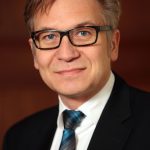Talks and debate, featuring
Moderator
Professor Dr. Peter Schneck, Osnabrück University
The November 2018 Congressional elections marked the midterm of Donald Trump’s presidency – and despite all hopes of a premature end, the possibility of the most controversial US President winning a second term no longer seems that far-fetched. While for the Democrats, the Trump “nightmare” has become a daily-recurring reality, the Republicans celebrate the President’s successes, especially in view of the radical-conservative overhaul of institutions and the aggressive implementation of the program of relentless “economic nationalism” promised during electoral campaigns: America First!
While the positive economic data and low levels of unemployment appear to be winning over even those American voters who find Trump intolerable and unacceptable as a politician, and particularly so as a person, even the most hardline critics are wondering what the political alternatives could be to overcome the increasing lack of understanding between the parts of American society that are drifting apart culturally and politically. Incomprehension, alienation and even rejection determine the stance even of many international allies of the US. Such tendencies can be detected in the current positioning of German policy as well.
Speakers will make a critical appraisal of Trump’s presidency to date, enabling predictions about the medium and long-term impacts of his policy in the national and international context, and discussing options regarding how political and cultural relations can be shaped in the future.
Josef Braml is a political scientist and a writer. He has been a Senior Fellow of the USA/Transatlantic Relations program of the German Council on Foreign Relations (DGAP) since 2006. Prior to that, he was a research fellow at the German Institute for International and Security Affairs (SWP). Braml earned his PhD in Political Science, Sociology, and French Cultural Studies from the University of Passau in 2001. He was a Congressional Fellow of the American Political Science Association and a member of the legislative staff in the US House of Representatives from 1997 to 1998.
Susan Neiman is Director of the Einstein Forum in Potsdam. She studied Philosophy and earned her PhD at Harvard University in 1986. She attended the Freie Universität Berlin during a study abroad. Neiman protested against the actions of the US in the Vietnam War and against the Iraq War waged by the Bush administration, and was a committed election campaigner for Barack Obama. Before taking on the leadership of the Einstein Forum in 2000, she was Professor of Philosophy at Yale University and Tel Aviv University.
Welf Werner is Director of the Heidelberg Center for American Studies (HCA) and Professor of American Studies at Heidelberg University. He received his habilitation and venia legendi from the Economics Department of the Freie Universität Berlin in 2003. His teaching and research focuses on US domestic and foreign economic policy while giving due regard to their intertwining with history and political science. In 2004, he co-edited the volume “Wie viel Ungleichheit verträgt die Demokratie? Armut und Reichtum in den USA.” (How much inequality can democracy tolerate? Poverty and wealth in the USA).
December 6, 2018, 7 pm, University Auditorium, Neuer Graben 29 / Schloss
Picture gallery
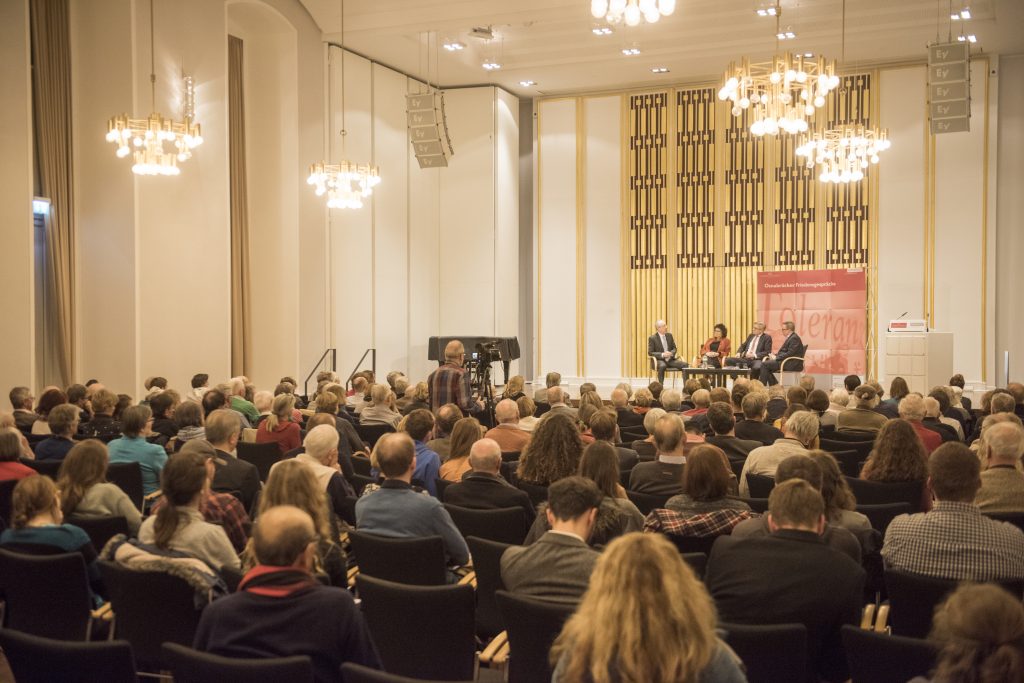
gefüllter Saal mit Blick auf das Podium, © Osnabrücker Friedensgespräche | Uwe Lewandowski 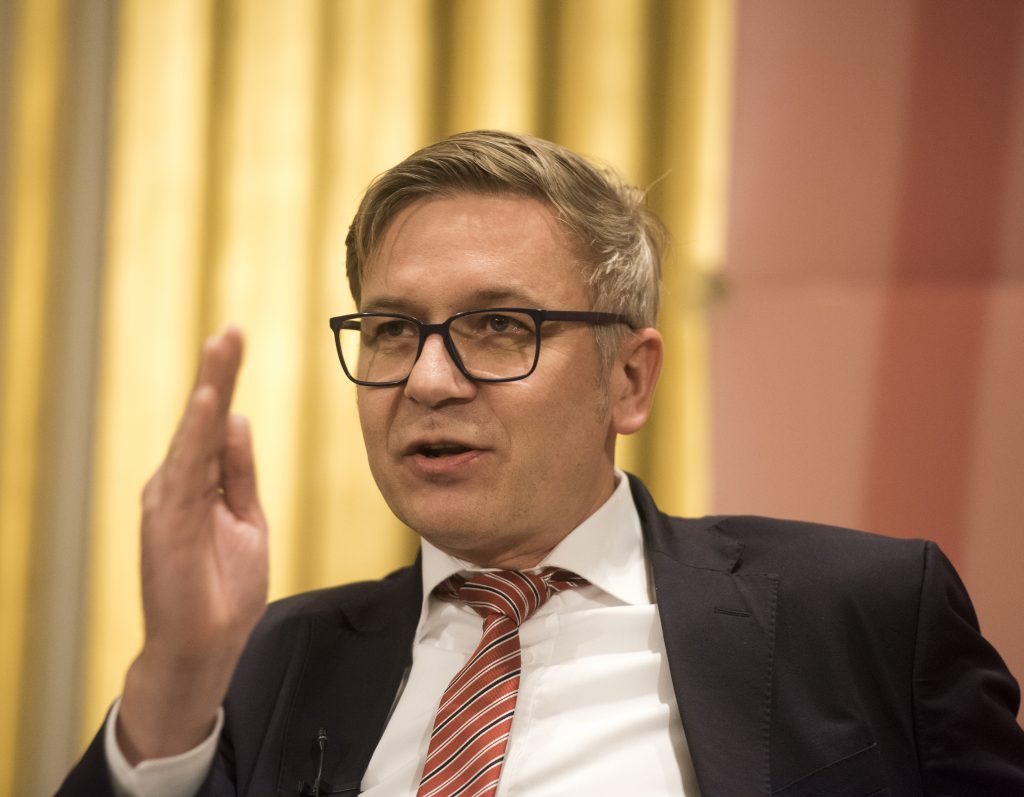
Dr. Josef Braml, © Osnabrücker Friedensgespräche | Uwe Lewandowski 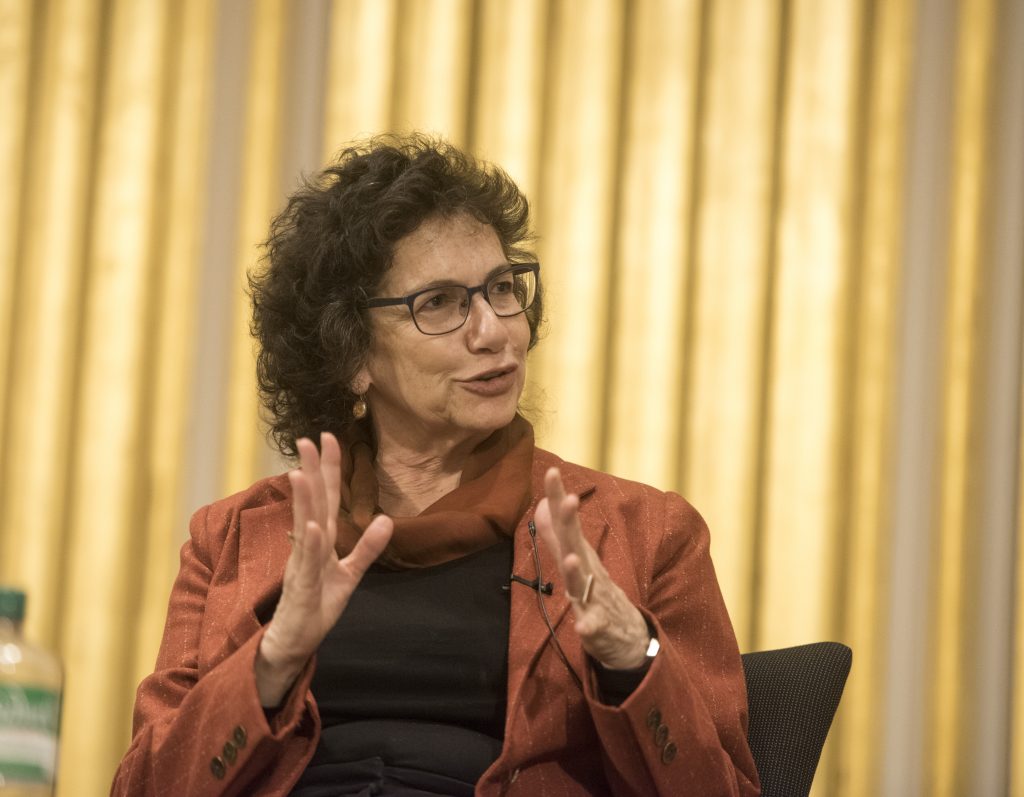
Prof. Dr. Susan Neiman, © Osnabrücker Friedensgespräche | Uwe Lewandowski 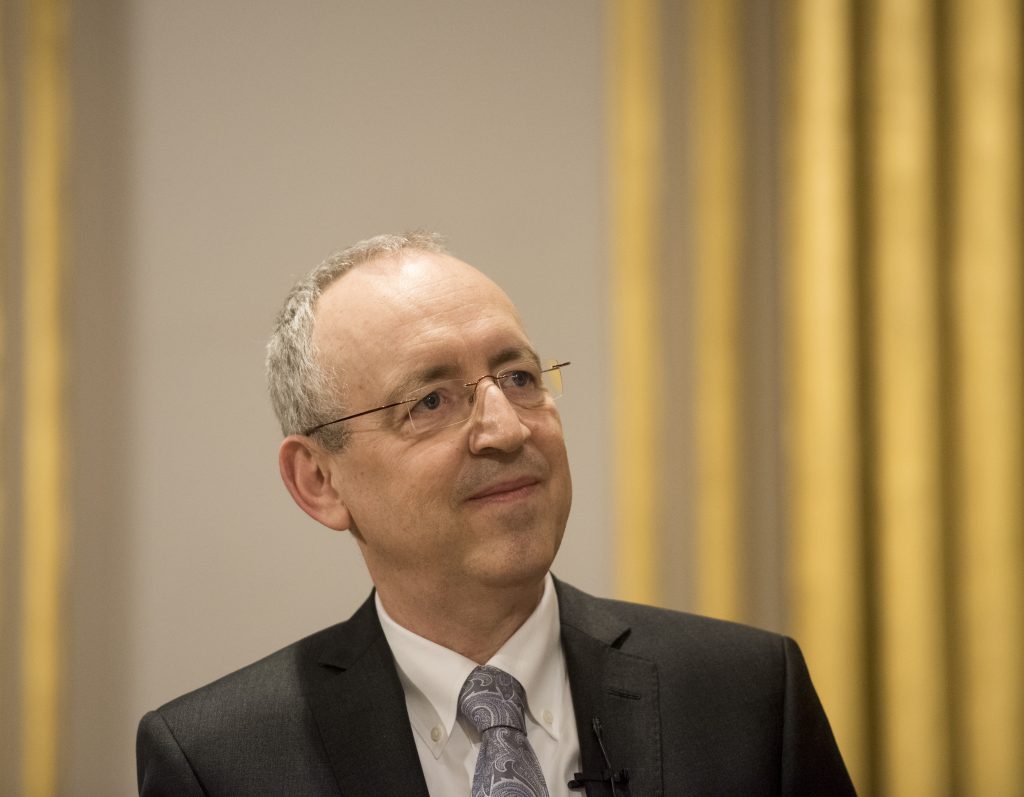
Prof. Dr. Welf Werner, © Osnabrücker Friedensgespräche | Uwe Lewandowski 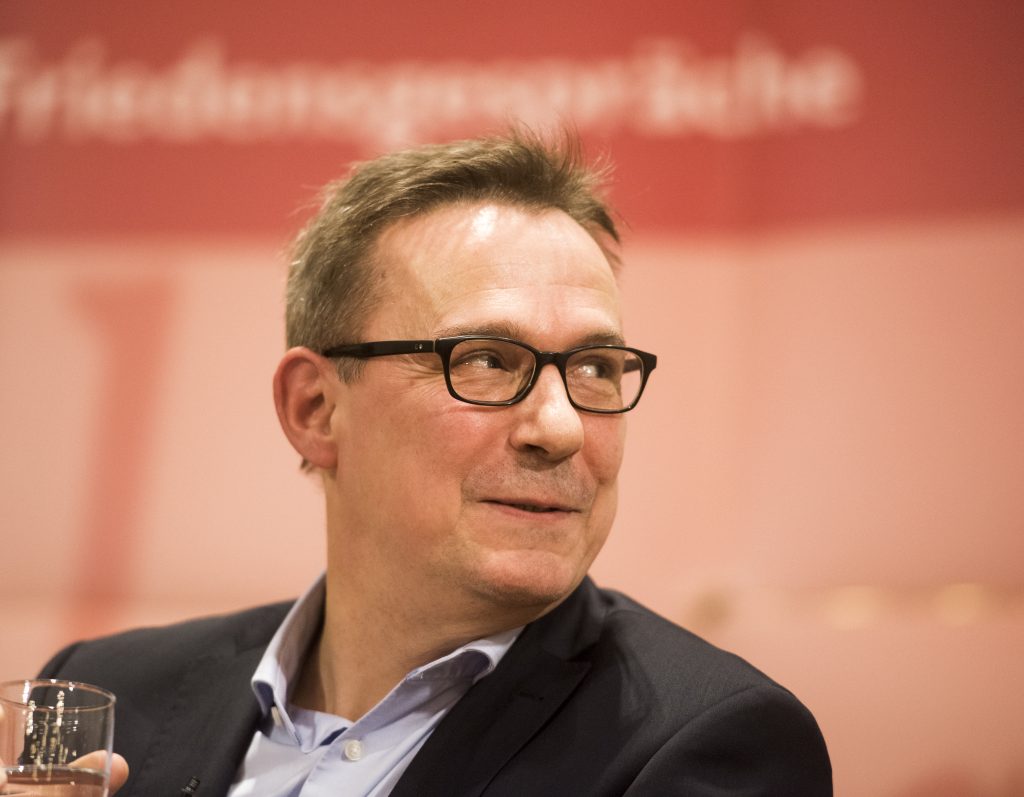
Prof. Dr. Peter Schneck, © Osnabrücker Friedensgespräche | Uwe Lewandowski 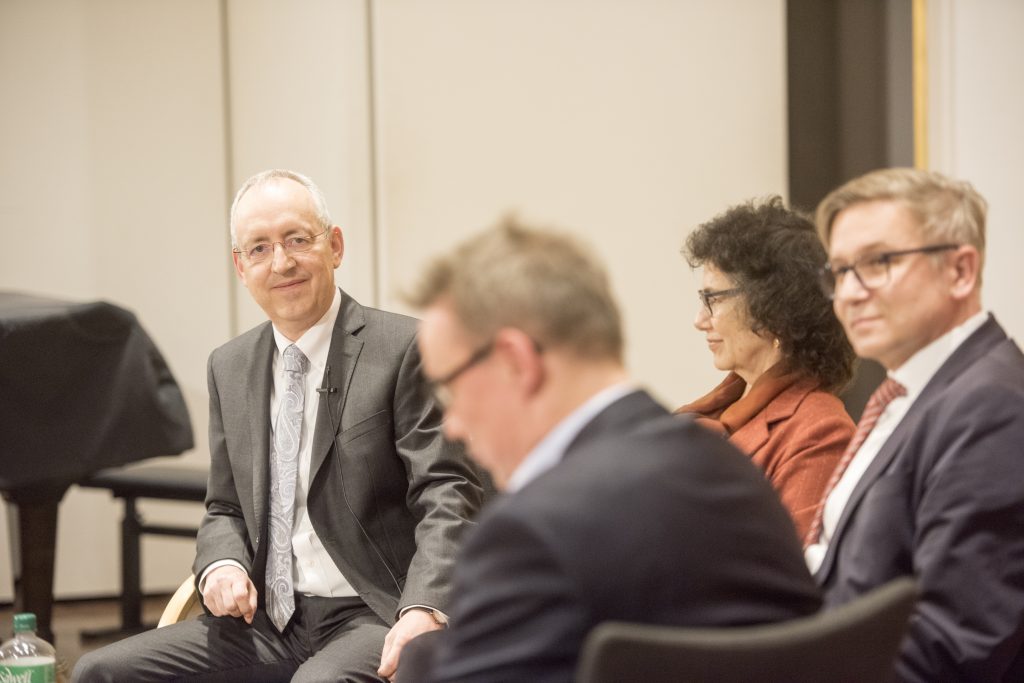
auf dem Podium, © Osnabrücker Friedensgespräche | Uwe Lewandowski 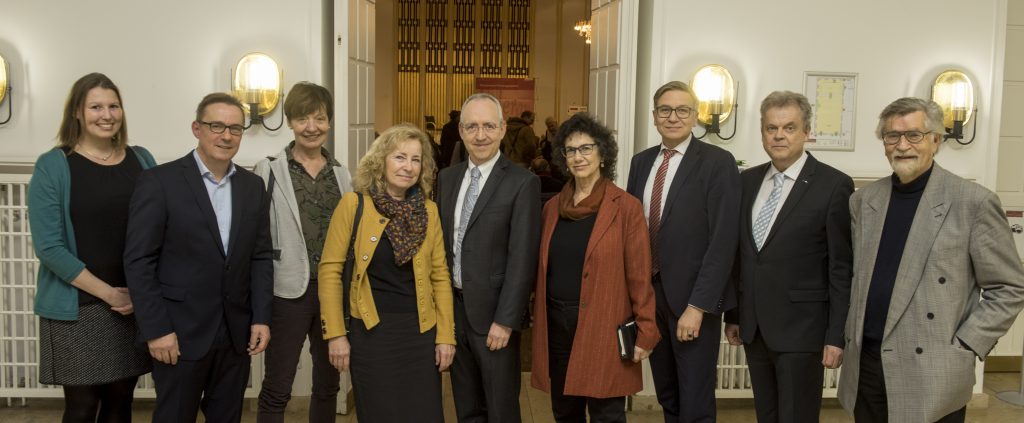
v. l.: Katharina Meyer, Prof. Dr. Peter Schneck, Prof. Dr. Martina Blasberg-Kuhnke, Birgit Strangmann, Prof. Dr. Welf Werner, Prof. Dr. Susan Neiman, Dr. Josef Braml, Prof. Dr. Wolfgang Lücke, Prof. Dr. Reinhold Mokrosch, © Osnabrücker Friedensgespräche | Uwe Lewandowski
© Osnabrücker Friedensgespräche | Uwe Lewandowski

